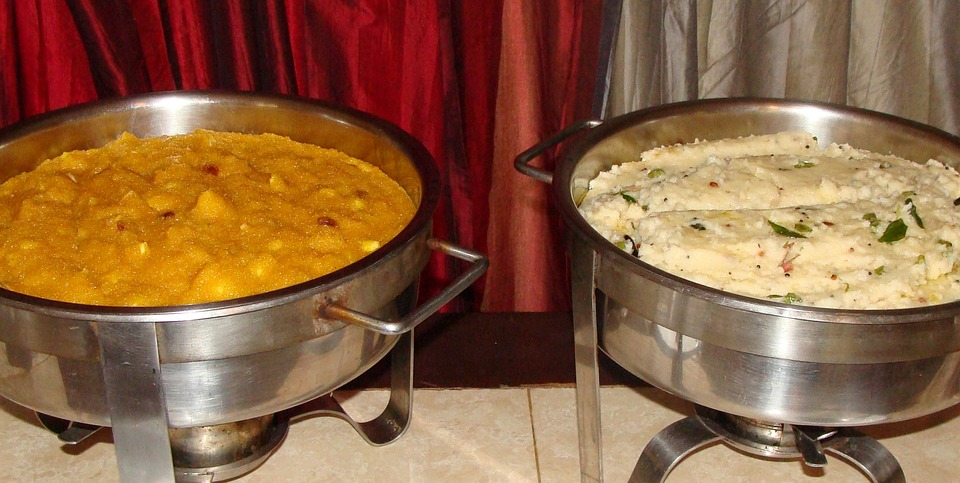This is the 19th in the series of 26 posts this month, one post a day, barring four Sundays, each on a theme corresponding to a letter of the English alphabet. My theme this year is "Chemicals in our life", spurred by my interest in chemistry.When I hear about sodium, what I remember is a little experiment in the school chemistry laboratory.
A small piece of this soft, silvery-white metal was taken out of the oil-filled bottle in which it was kept. Immediately sodium caught fire.
This was to demonstrate the highly reactive nature of the metal.
What happened was that sodium reacted with oxygen releasing a large amount of energy in the form of heat and light, causing the metal to ignite.
Solid sodium reacts with water too. The reaction produces sodium hydroxide and hydrogen. Hydrogen can catch fire in the air.
The reaction also releases a lot of heat, which can melt sodium, making it move around on the water's surface, increasing the exposure to air, and the possibility of fire.
IN FOOD
Sodium is an essential nutrient. It maintains the balance of fluids and minerals, regulates blood pressure and blood volume, transmits nerve impulses, and contracts and relaxes muscles.
Sodium is also needed for the absorption of some nutrients, such as glucose and amino acids.
We get most of the sodium from common salt. In India, salt is added during the preparation of all food items.
This is the reason Mahatma Gandhi, in 1930, picked salt as the focal point during his Civil Disobedience Movement and launched the Salt Satyagraha against the tax imposed on salt.
However, now because of the danger of high blood pressure and cardiac issues, many people have considerably reduced intake of common salt.
OTHER USES
Sodium is used in the production of sodium hydroxide, also known as caustic soda. This is used in a variety of manufacturing processes, including the production of pulp and paper, textiles and soaps and detergents.
Sodium is also used in the purification of aluminium and other metals, as well as in the production of agricultural fertilizers and pesticides.
_________________________
Image of food from Pixabay.
The information provided in this post has been obtained from multiple authentic resources. However, it is presented in an abridged format and might not have all the details. Therefore, before acting on any information, readers are requested to exercise caution and do further research.
This post is a part of #BlogchatterA2Z 2023. I am also on A2Z April Challenge.



The world of chemistry is bewitching. Just imagine this highly reactive, fiery sodium being consumed by us in various forms such as salt. How elements combine giving entirely different compounds!
ReplyDeleteHi Tomi - Yes, absolutely. Fascinating as well, is it not? Regarding elements, often, their properties are different in different concentrations and states. So, the sodium in our food is entirely different from "raw" solid sodium in room temperature.
DeleteLong has sodium been important to the world, and widely traded. Some years ago we stopped adding salt when cooking at home and I never add it to food when we are eating out, although I know there will often be plenty of salt in food. Now, many things taste too salty to me.
ReplyDeleteSodium is important but we should not take too much. That is what I understand.
ReplyDeleteI put solid sodium in a beaker that had a drop of water in it once. I learned very quickly to make sure the beakers were COMPLETELY dry.
ReplyDeleteI had no idea pure sodium was so reactive.
ReplyDeleteJamie (jannghi.blogspot.com):
ReplyDeleteDon't forget the symbol for sodium--Na from Latin natrium.
Hi Jamie - Thanks for adding that bit. I thought I had included that in the post. Somehow, I missed it.
DeleteHi Pradeep - another excellent take ... I didn't realise about the reactive element of sodium - certainly salt is so important in our lives, or not as the case may be. Salt tax and the salt hedge - I always remember those - cheers Hilary
ReplyDeleteThanks for all the great information! I knew some of this, but not all. Be well, my dear.
ReplyDelete